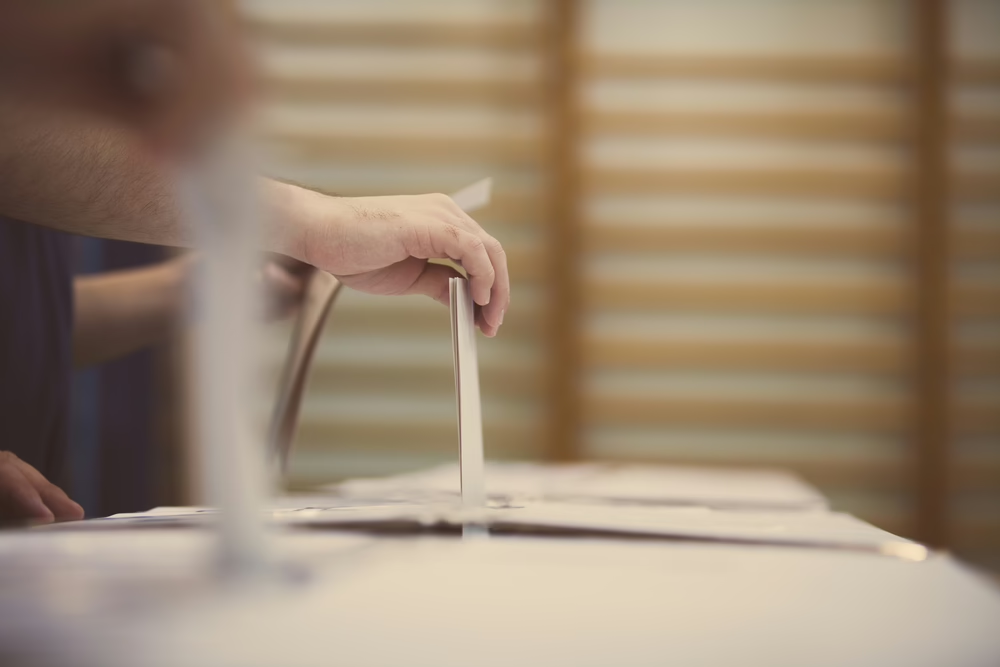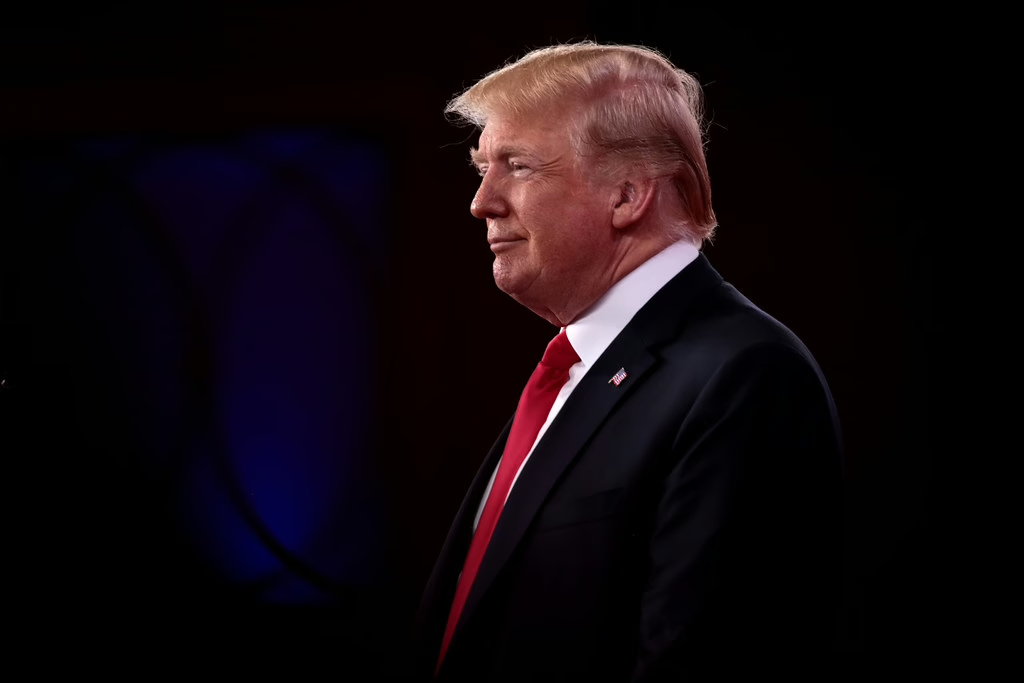Over 60 national elections will serve as a bellwether for the state of democracy around the world

At the third Summit for Democracy in Seoul earlier this month, South Korean President Yoon Suk Yeol pointed out that 2024 is a “super election year,” in which more than half of the global population will cast votes. This historic election year, the likes of which won’t be seen again until 2048, is taking place against a backdrop of sustained democratic backsliding, creating special challenges and concerns.
The quality of democracy enjoyed by the average global citizen today is back to 1985 levels, according to a recent report issued by the V-Dem Institute. V-Dem annually assesses countries’ electoral, liberal, participatory, deliberative, and egalitarian qualities to generate a snapshot of the health of democracy throughout the world. It has found that nearly three-fourths of the world’s population now lives in autocracies, representing half of the world’s countries.
In its latest report, V-Dem echoes President Yoon, noting that “2024 is ‘the biggest election year’ in over a century, and several billion people are called to cast their votes in an uncertain political environment worldwide.” Taken together, these elections will serve as a bellwether for the state of freedom around the globe. In this issue, we explore why. —Melissa Amour, Managing Editor

The Year of Global Elections
It’s a presidential election year in the US, but we’re far from alone. More than 60 countries are holding national elections in 2024. While that sounds purely positive, there’s a catch: some of these elections could ultimately empower leaders with authoritarian leanings.
V-Dem’s report indicates that only 5 percent of 2024 elections are taking place in the context of democratization, while over 52 percent are being held in countries where democratic levels are in active decline. Coming at a time when an attraction to autocracy is sweeping the West due to democracy’s perceived failures, the implications of this election year for human rights, fundamental freedoms, separation of powers, rule of law, and other democratic institutions are huge.
What You Should Know
According to the International Institute for Democracy and Electoral Assistance’s Global State of Democracy report, half of all countries have seen declines in at least one indicator of democracy over the past five years. While nations around the world are almost evenly distributed between 91 democracies and 88 autocracies, 71 percent of the global population now resides in autocracies—a 48 percent increase over the last decade.
“Think of it as the democracy paradox: While more people in 2024 will be exercising the most fundamental act in a democracy—voting—democracy itself has rarely felt more vulnerable.” —Bryan Walsh, Vox
Some elections, whether presidential or legislative or both, are taking place in countries that are already autocracies like Russia. Others are happening in countries that are experiencing significant democratic backsliding but are not yet fully autocratic—India is a great example. Many are taking place where democracy has been facing “serious tremors from surging illiberal political currents, punishing economic crises, debilitating governance shortcomings, or other woes,” according to the Carnegie Endowment for International Peace.
“This notable run of elections will take place in a global context defined by an ongoing democratic recession and ever-intensifying geopolitical tensions among major powers. Many of the elections will have significant consequences for one or the other—or both—of these defining trends.” —Thomas Carothers, co-director of the Carnegie Endowment for International Peace’s Democracy, Conflict, and Governance Program
As of March 23, 15 national elections have been held, with an average voter turnout rate of 61 percent. So far, the results have been mixed. One standout is Taiwan, which has been internationally recognized for its free and fair election, held in January.
“The Taiwanese election was remarkably balanced, with the incumbent party winning the presidency but the opposition gaining control of the legislature. Trust in electoral institutions remains high in Taiwan.” —Edelman Global Advisory
On the other end of the spectrum is Russia, where President Vladimir Putin “won” 87 percent of the vote earlier this month in an obviously rigged and unfree election.
“[E]xiled watchdog groups reported episodes of ballot-stuffing, voter intimidation at some polling stations, and other attempts at manipulation, including the alleged busing of Putin supporters to vote multiple times at different locations. In areas of Ukraine occupied and illegally annexed by Russia, observers recounted how local authorities coerced people to participate in the election at ‘gunpoint.’” —Ishaan Tharoor, author of Today’s WorldView newsletter and column
How We Got Here
Since 2009, the number of people living in countries slipping into autocracy has been greater than the number of people living in countries that are democratizing. The International Institute for Democracy and Electoral Assistance reports that “across every region of the world, democracy has continued to contract.” Aspiring autocrats are exploiting the situation, even in places where autocratization was once almost unthinkable.
“Authoritarian populists tilt the democratic playing field to favor themselves and their personal and political interests. Subverting democracy from the inside without violent repression allows leaders like Orbán and Trump to pretend they are democratic. This authoritarianism from within creates chokepoints, where the opposition isn’t crushed, but it has a hard time breathing.” —Gábor Scheiring, Harvard University fellow and former member of the Hungarian Parliament from 2010 to 2014
The erosion of free expression and a free press can help explain the slide. According to Freedom House, a Washington think tank that monitors the health of democracies, global freedom declined for the 17th consecutive year in 2023, amid increasing threats to the rights of journalists in dozens of countries.
“These are global phenomena—including the impact of digital technology and social media, economic stresses, environmental stresses, divisions and polarization along many different lines, whether cultural or religious or political—that are affecting democracies everywhere.” —Laurent Dubois, academic director of UVA’s Karsh Institute of Democracy
But the subversion of elections remains one of the most significant indicators of where a country’s leadership is heading. V-Dem notes that the erosion of election quality across the globe is particularly alarming, as elections can either reinforce or counteract the autocratization trend.
“Clean elections, a core institution of democracy which used to be relatively unaffected, appears now in the V-Dem report as the second worst affected component ‘deteriorating in 23 countries and improving in twelve.’ The indicator of free and fair elections is suffering the biggest decline within this component, deteriorating in 35 countries in 2023, in comparison with 30 in 2022 and 16 in 2019. Bangladesh, Egypt, and Venezuela are prominent examples where the most recent elections were significantly less free and fair.” —Democracy Without Borders
At a time when several high-impact geopolitical conflicts are intensifying, the stakes for democracy couldn’t be higher.
“We will know whether democracy lives or dies by the end of 2024.” —Maria Ressa, Nobel Peace Prize laureate and author of “How to Stand Up to a Dictator”
What People Are Saying
So by the end of 2024 and democracy’s Super Bowl, what could the world look like? Far-right populists could continue to consolidate power in Europe and push for more anti-migrant policies and an isolationist foreign policy.
“There is a real possibility, I think, that the far right will do well in European elections. Not to the point of running the European Parliament, but conceivably to the point where anyone who wants to run the European Parliament has to take account of what they’re saying and doing,” —Anand Menon, professor of international politics at King’s College London
Asia, too, may see a shift in leadership toward the populist strongman model.
“[W]ith the exception of Japan, South Korea, and Taiwan, Asia-Pacific is seeing a significant increase in populism and authoritarianism, harking back to an era when strongmen presidents ruled with an iron fist. Hundreds of millions of votes won’t necessarily mean more democracy.” —Karishma Vaswani, Bloomberg Opinion columnist covering Asia politics
The US may return Donald Trump to the White House, despite his anti-democratic tendencies. And in Latin America, voters may opt to keep anti-democratic leaders in place.
“In Latin America’s 2024 electoral super-cycle, voters seem likely to reward leaders who address their most fundamental needs—in some cases regardless of whether they value democracy, clean government, or the rule of law. That is a notable shift, following several years in which a ‘throw the bums out’ anti-incumbent sentiment was the prevailing trend in the region.” —Tamara Taraciuk Broner, Inter-American Dialogue’s Peter D. Bell Rule of Law Program director
In Africa, where democracy is still young, the story is much the same. Seven African leaders were toppled by their own militaries between August 2020 and November 2023—a far from democratic change in regime, but not unacceptable to many Africans.
“Most Africans still have faith in democracy [yet] they have been desperate to rid themselves of regimes that purport to be democratic but often fail to deliver on democracy’s most basic promises.” —Comfort Ero and Murithi Mutiga of the International Crisis Group
These frustrations will have universal relevance throughout the world this year.

-
- International Elections 2024: What You Need to Know —The New York Times
- The Super Election Year —Statista
- 25 Elections That Could Change the World —Associated Press
- Mapped: 2024 Global Elections by Country —Visual Capitalist
- 2024 Elections Are Ripe Targets for Foes of Democracy —NPR

-
- Party Drama: Republicans Aren’t as Unified Around Trump as They Appear —NBC News
- Poll Peril: Federal Officials Say 20 Have Been Charged for Threatening Election Workers —The Washington Post
- Fake Lake: The Danger of Deepfakes to Democracy —Brennan Center
- Food for Thought: Is Democracy in the US Working? It’s a Toss-Up, But Voters Don’t See It Ending in Their Lifetimes —Quinnipiac University
- Give This a Listen: Elections Everywhere All at Once —Atlantic Council

-
- Israel: US Pushes to Shape Israel’s Rafah Operation, Not Stop It —The Wall Street Journal
- Qatar: Qatari Royal Invested About $50 million in Pro-Trump Network Newsmax —The Washington Post
- Russia: Russia Extends Arrest of WSJ Reporter Evan Gershkovich —AP News
- United Kingdom: UK Accuses China of Cyberattacks on British Democracy —POLITICO
- Venezuela: Venezuela’s Rosales Willing to Cede Ballot Place to Opposition Unity Candidate —Reuters

Hey Topline readers, you remember the drill. We want to hear your reactions to today’s stories. We’ll include some of your replies in this space in our next issue of The Topline. Click here to share your take, and don’t forget to include your name and state. We’re looking forward to hearing from you!






